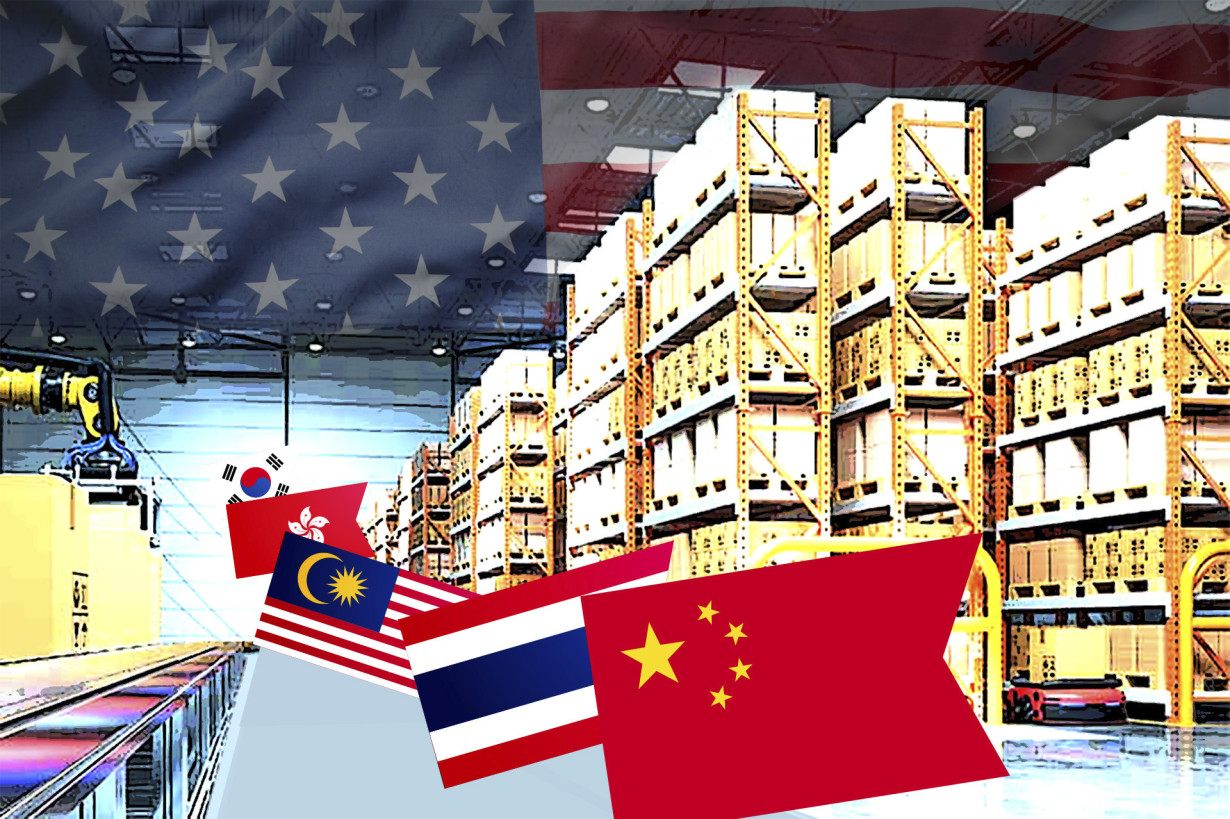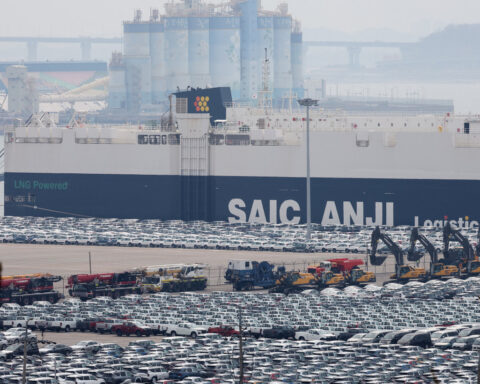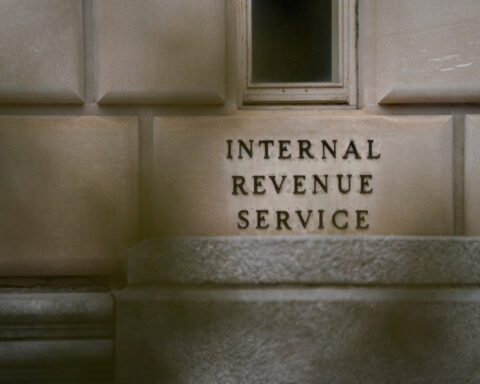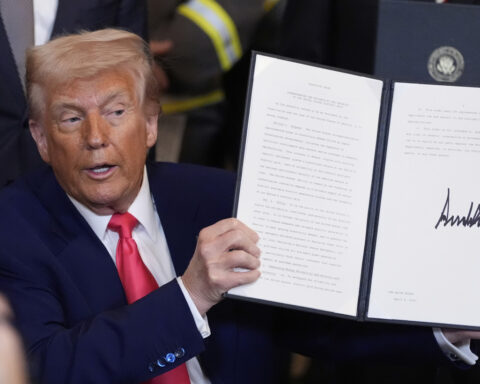Logistics operators based in Asia have been leasing more warehouses in the United States in response to changes in e-commerce, global trade and manufacturing.
Third-party logistics firms, known as 3PLs, work with online retailers and other businesses to store, pack and move products for sale.
Leasing by Asia-based logistics firms more than doubled in key U.S. markets such as New Jersey and Los Angeles last year compared to 2023, according to global real estate firm Cushman & Wakefield. Landlords generally have seen less demand for warehouses following the COVID-19 pandemic, which led to a boom in online shopping.
A leasing surge by Asia-based companies seeking to take advantage of favorable market conditions has emerged as a bright spot for the industry, real estate company CBRE Group said in a June 2024 report.
E-commerce companies and logistics providers based in China were estimated to account for 20% of new U.S. warehouse leases in the U.S. though the third quarter of 2024, logistics real estate company Prologis said.
By leasing warehouses, some companies that feared potential tariffs on imported goods were looking to store more inventory in the U.S., according to the CBRE report. U.S. President Donald Trump in early February put an additional 10% tariff products imported from China, a tax set to 20% on Tuesday.
The Associated Press recently spoke about warehouse leasing trends with Jason Tolliver, co-leader of Cushman & Wakefield’s Americas logistics and industrial services practice. The interview has been edited for length and clarity.
Q: There’s data that shows a rise in Chinese and Asia-based companies leasing more warehouses in the U.S. What’s your company seeing on the ground?
A: When you think about the uptick in Asian-based 3PLs - or 3PLs more broadly - we’ve really seen them become a more significant lessor of space in the last two years. That's being driven by the complexity in the market. As uncertainty rises and as trade complexity increases, the value proposition of a third-party logistics provider that has the scale, and the expertise, to be able to manage it has helped drive demand.
We’ve seen an increase in the amount of Asian-based leasing by 3PLs that are tied to cross-border e-commerce. And a key driver has been the de minimis exemption, which allows online orders to be placed in the U.S. and have it shipped directly from storage facilities throughout Asia. There’s also a broader trend of regionalization that’s being driven by increases in global trade and manufacturing.
Q: How do U.S.-based warehouses benefit companies that are operating under the de minimis model?
A: It’s really about speed. The ability to ship directly to consumers. And also the reverse commerce or logistics - or being able to process returns and resell products back into the U.S.
In terms of footprint, the scale of Asian-based 3PLs has been much smaller than other e-commerce players. But it’s been a significant driver of leasing activity in recent years because as other e-commerce players have pulled back on leasing, while Asia-based logistics operators were aggressively moving forward.
Q: Where do these companies rank in terms of overall leasing activity?
A: It varies depending on the market. But by far the 3PL space, whether domestic or foreign, is the strongest driver of leasing. They are forecasted to continue to be the most significant lessors of logistics and industrial space in the Americas. Second is manufacturing. And third are retailers and wholesalers.
Q: In early February, President Donald Trump threw out and then paused imposing tariffs on small-value packages arriving from China. Have you seen any shifts from companies that are processing these changes?
A: Not yet. Commercial real estate doesn’t react as quickly as the stock market, so it takes longer for policies of any kind to work through the system.
We are seeing retailers and wholesalers planning for potential changes. But broadly, there’s a lack of sufficient clarity in terms of policies. So, we’re not seeing anyone making meaningful changes to their network.

 Trump has begun another trade war. Here's a timeline of how we got here
Trump has begun another trade war. Here's a timeline of how we got here
 Canada's leader laments lost friendship with US in town that sheltered stranded Americans after 9/11
Canada's leader laments lost friendship with US in town that sheltered stranded Americans after 9/11
 Chinese EV giant BYD's fourth-quarter profit leaps 73%
Chinese EV giant BYD's fourth-quarter profit leaps 73%
 You're an American in another land? Prepare to talk about the why and how of Trump 2.0
You're an American in another land? Prepare to talk about the why and how of Trump 2.0
 Chalk talk: Star power, top teams and No. 5 seeds headline the women's March Madness Sweet 16
Chalk talk: Star power, top teams and No. 5 seeds headline the women's March Madness Sweet 16
 Purdue returns to Sweet 16 with 76-62 win over McNeese in March Madness
Purdue returns to Sweet 16 with 76-62 win over McNeese in March Madness








